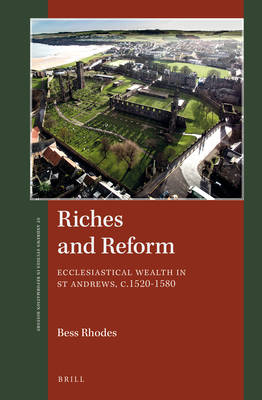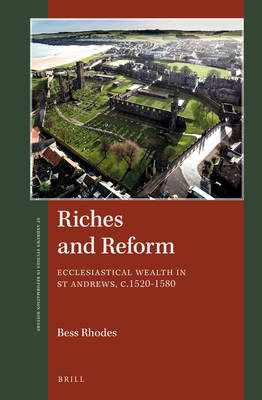
- Afhalen na 1 uur in een winkel met voorraad
- Gratis thuislevering in België vanaf € 30
- Ruim aanbod met 7 miljoen producten
- Afhalen na 1 uur in een winkel met voorraad
- Gratis thuislevering in België vanaf € 30
- Ruim aanbod met 7 miljoen producten
Zoeken
€ 198,45
+ 396 punten
Omschrijving
The Scottish Reformation is often presumed to have had little economic impact. Traditionally, scholars maintained that Scotland's late medieval church gradually secularised its estates, and that the religious changes of 1560 barely disrupted an ongoing trend. In Riches and Reform Bess Rhodes challenges this assumption with a study of church finance in Scotland's religious capital of St Andrews, a place once regarded as the 'cheif and mother citie of the Realme'. Drawing on largely unpublished charters, rentals, and account books, Riches and Reform argues that in St Andrews the Reformation triggered a rapid, large-scale, and ultimately ruinous redistribution of ecclesiastical wealth. Communal assets built up over generations were suddenly dispersed through a combination of official policies, individual opportunism, and a crisis in local administration, leading the post-Reformation churches and city of St Andrews into 'poverte and decay'.
Specificaties
Betrokkenen
- Auteur(s):
- Uitgeverij:
Inhoud
- Aantal bladzijden:
- 222
- Taal:
- Engels
- Reeks:
- Reeksnummer:
- nr. 15
Eigenschappen
- Productcode (EAN):
- 9789004347984
- Verschijningsdatum:
- 29/08/2019
- Uitvoering:
- Hardcover
- Formaat:
- Genaaid
- Afmetingen:
- 160 mm x 236 mm
- Gewicht:
- 476 g

Alleen bij Standaard Boekhandel
+ 396 punten op je klantenkaart van Standaard Boekhandel
Beoordelingen
We publiceren alleen reviews die voldoen aan de voorwaarden voor reviews. Bekijk onze voorwaarden voor reviews.








